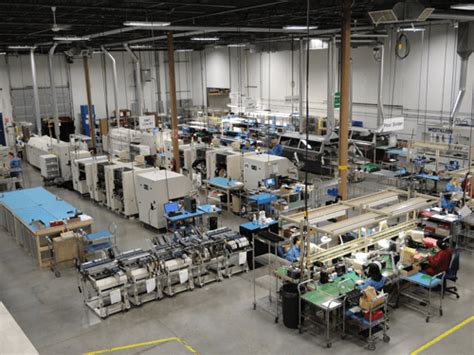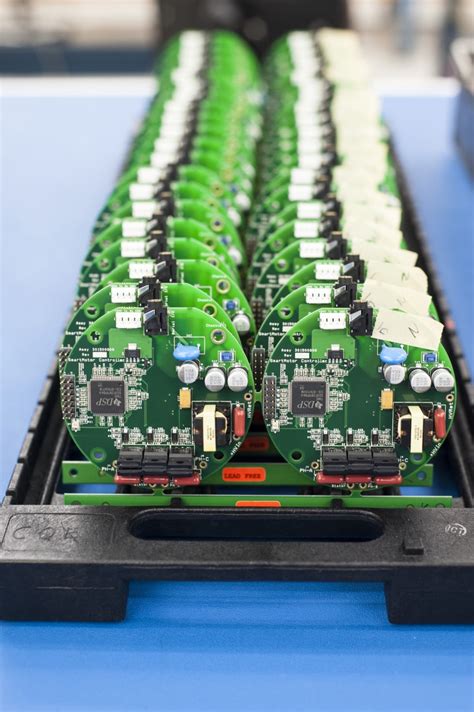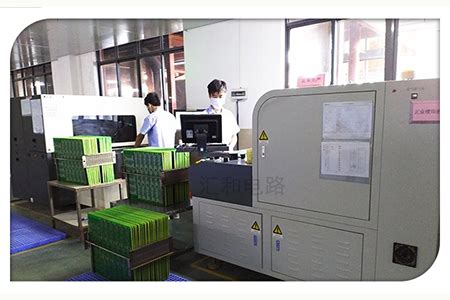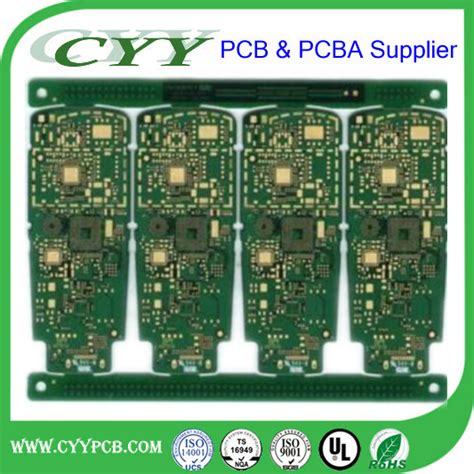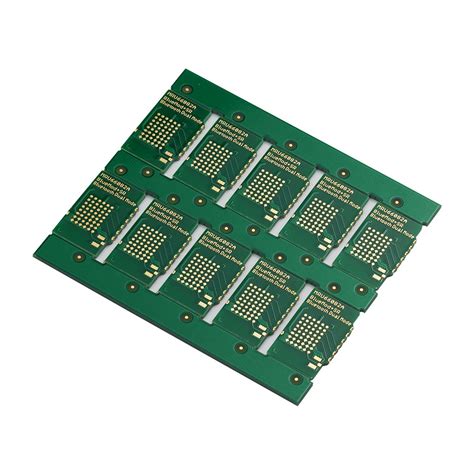Top Circuit Board Manufacturing Companies Revolutionizing Electronics Production
Key Takeaways
In your exploration of pcb manufacturing, you’ll discover that the landscape is marked by remarkable advancements driven by pcb manufacturing companies that are setting new benchmarks. These companies are not only concerned with the pcb manufacturing cost, but they also prioritize quality and efficiency in every stage of production. By adopting innovative technologies, they manage to balance the often competing needs of prototyping and high-volume production, thus ensuring that they can cater to a diverse range of client demands without sacrificing standards. The evolution in techniques has led to a surge in the reliability and performance of printed circuit boards (PCBs), significantly impacting various sectors, from consumer electronics to industrial applications. Additionally, effective quality assurance practices have become integral in this business, ensuring that products meet stringent industry standards. As you engage with different pcb manufacturing business models, it is clear that sustainability is not just a buzzword; it has become an essential pillar guiding production strategies. Overall, the insights on current trends and challenges elucidate how these leading manufacturers are navigating the complexities of modern electronics production while making strides toward an eco-friendly future.
Top Innovations in Circuit Board Manufacturing Technologies
In the dynamic sphere of electronics, innovations in pcb manufacturing technologies are continually redefining the standards of quality and efficiency. Cutting-edge pcb manufacturing companies are integrating advanced techniques such as robotics, automated optical inspection, and smart manufacturing processes that enhance precision and streamline production timelines. Notably, the rise of additive manufacturing—also known as 3D printing—has allowed for more complex designs that were previously unattainable, reducing pcb manufacturing costs while improving customization for varied applications.
Moreover, advancements in materials science have led to the development of high-performance substrates that not only withstand greater thermal stress but also contribute to overall circuit reliability. These innovations enable manufacturers to create more compact and efficient boards, meeting the increasing demand for high-density packaging in electronics.
“Embracing modern technologies in pcb manufacturing is crucial for staying competitive in an ever-evolving market.”
As you explore opportunities within your own pcb manufacturing business, consider how these technological advancements can be leveraged to optimize your production processes. By adopting cutting-edge practices and materials, you can not only enhance product quality but also reduce lead times and improve customer satisfaction—key components in establishing a formidable presence in this competitive sector.
Key Players in the Circuit Board Manufacturing Industry
The landscape of pcb manufacturing is characterized by a mix of established leaders and dynamic innovators. Top pcb manufacturing companies continually push the boundaries of technology and craftsmanship to deliver cutting-edge products. Companies like Company A, known for its specialized multilayer boards, and Company B, recognized for its rapid prototyping capabilities, exemplify the commitment to quality and innovation that defines the industry. You may find that the efficiency of your projects significantly hinges on selecting a manufacturer that aligns with your specific needs.
When considering pcb manufacturing cost, you must also take into account each company’s dedication to sustainability. This involves not only using eco-friendly materials but also implementing practices that minimize waste throughout the production process. The modern consumer increasingly values sustainability, making it important for manufacturers to respond accordingly.
To illustrate the competitive dynamics in this sector, here’s a simple overview of some key players:
| Company Name | Specialization | Annual Revenue (approx.) | Sustainability Practices |
|---|---|---|---|
| Company A | Multilayer Boards | $500 million | Recycled materials usage |
| Company B | Rapid Prototyping | $300 million | Zero waste initiatives |
| Company C | High-Volume Production | $750 million | Solar-powered facilities |
In a market as dynamic as this one, understanding the strengths of pcb manufacturing companies allows you to make informed decisions for your pcb manufacturing business. Knowing their specialties can help you find partners that not only meet but exceed your production expectations. As you navigate through various offerings, consider how these industry leaders impact not just individual projects but also set benchmarks for quality and efficiency in electronics production.
The Role of Sustainability in Modern PCB Production
In today’s circuit board manufacturing landscape, sustainability plays a crucial role in shaping production methods and business practices. You may find that pcb manufacturing companies are increasingly adopting eco-friendly practices to minimize their environmental impact. This shift often includes the use of recyclable materials and the implementation of energy-efficient processes, which can lead to reduced pcb manufacturing costs over time. By prioritizing sustainable methods, these companies not only enhance their brand reputation but also appeal to environmentally conscious consumers.
Moreover, as you explore options for your pcb manufacturing business, it’s essential to consider how sustainability can give you a competitive edge. Companies that invest in green technologies and sustainable supply chains often experience increased customer loyalty and market demand. They are also better positioned to comply with stringent environmental regulations, thus avoiding potential fines associated with non-compliance. The ongoing evolution towards sustainable practices in pcb manufacturing is not just beneficial for the planet; it can also create long-term efficiencies that directly impact your bottom line. Embracing these changes is vital as you navigate the future of electronics production, ensuring that your projects align with both innovation and environmental responsibility.
Prototyping vs. High-Volume Production: Balancing Efficiency and Quality
In the world of pcb manufacturing, the dilemma between prototyping and high-volume production often presents a significant challenge. For companies offering pcb manufacturing services, understanding this balance is crucial for maintaining competitiveness and meeting client demands. Prototyping allows for rapid iteration and flexibility, enabling engineers and designers to test ideas and refine designs before committing to large-scale production. This stage is essential in minimizing pcb manufacturing cost by identifying potential issues early in the design process. On the other hand, high-volume production focuses on efficiency, aiming to produce a large quantity of circuit boards while maintaining quality standards. This stage typically involves streamlined processes and robust quality assurance practices.
For many pcb manufacturing companies, the ability to switch seamlessly between these two processes can set them apart in an increasingly crowded market. It’s essential for you as industry professionals to grasp how operational decisions impact both your bottom line and product reliability. By investing in advanced technologies and adopting best practices, manufacturers can enhance their pcb manufacturing business‘s ability to deliver high-performance products that cater to an array of sectors, from consumer electronics to aerospace. Thus, achieving a harmony between the flexibility of prototyping and the efficiency of bulk production is key to sustaining growth and innovation in today’s electronics landscape.
Quality Assurance Practices in Circuit Board Manufacturing
In the realm of pcb manufacturing, quality assurance is paramount to ensure that the final product meets the stringent requirements of performance, reliability, and safety. As you navigate through the options offered by various pcb manufacturing companies, it’s essential to understand their approaches to quality control. These companies employ a combination of rigorous testing, precise manufacturing processes, and comprehensive inspections at every stage of production. This attention to detail not only mitigates risks associated with pcb manufacturing costs, such as rework and replacements but also enhances overall client satisfaction.
Adopting advanced strategies like Statistical Process Control (SPC) allows you to benefit from data-driven decision-making that minimizes defects and maximizes efficiency in the pcb manufacturing business. Moreover, leveraging automated inspection technologies helps in achieving consistent quality standards, providing you with confidence in the durability and performance of your circuit boards. As these pcb manufacturing companies continue to innovate their quality assurance practices, they set a benchmark for what you can expect in reliability and scalability from your electronics production needs.
Emerging Trends Shaping the Future of PCB Design and Fabrication
In the competitive landscape of pcb manufacturing, it is crucial for pcb manufacturing companies to stay ahead by embracing emerging trends that redefine design and fabrication processes. One prominent trend is the integration of smart technologies such as automation and artificial intelligence, which optimize workflows and enhance production efficiency. By implementing these cutting-edge solutions, you can significantly reduce pcb manufacturing costs while maintaining high-quality standards. Additionally, there’s a growing emphasis on flexible circuit boards that cater to the ever-evolving demand for compact and lightweight electronics. As customers increasingly seek out sustainable options, companies are also focusing on eco-friendly materials and processes, which not only appeal to environmentally conscious consumers but also contribute to long-term economic benefits for your pcb manufacturing business. Furthermore, the shift towards multilayer boards offers enhanced functionality, allowing for more complex designs without sacrificing reliability or performance. Overall, keeping an eye on these trends can empower you to make informed decisions that position your business at the forefront of the industry.
Case Studies: Success Stories from Leading Circuit Board Manufacturers
In reviewing the landscape of pcb manufacturing companies, several notable success stories emerge, reflecting their adaptability and innovation in the pcb manufacturing sector. One prominent example is a company that pioneered a unique process, significantly reducing pcb manufacturing cost without compromising quality. They achieved this by integrating advanced automation technology, streamlining their production lines, and enhancing precision in every layer of the board. By leveraging real-time data analytics, they not only optimized their workflow but also improved yield rates substantially.
Another noteworthy case involves a manufacturer that excelled in custom PCB solutions for a diverse clientele, from startups to established giants in the tech industry. Their commitment to sustainability set them apart as they adopted eco-friendly materials and waste reduction techniques, resonating well with environmentally conscious clients. This strategic pivot not only attracted new business but also fostered loyalty among existing customers who prioritized sustainable practices in their own operations.
Furthermore, a global player in the pcb manufacturing business has made strides by focusing on flexible PCB technology. They effectively minimized production time for complex designs by employing innovative fabrication techniques that allow for rapid prototyping and efficient scaling to high-volume production runs. This transition has positioned them as a leader in meeting the increasingly intricate demands of modern electronics.
These case studies exemplify how leading circuit board manufacturers are not just reacting to market needs but are actively shaping industry trends through ingenuity and resilience. As you explore these examples, consider how these successes underline the importance of innovation and adaptability within your own endeavors in the pcb manufacturing field.
Challenges Faced by Circuit Board Manufacturers and Their Solutions
In the pcb manufacturing industry, companies face a myriad of challenges that can impact their overall efficiency and output quality. One significant hurdle is the rapidly increasing pcb manufacturing cost, which often stems from volatile raw material prices and rising labor costs. To mitigate these financial pressures, you might explore strategic partnerships with suppliers or invest in automation technologies that enhance production efficiency. Furthermore, the complexity of modern devices demands highly specialized skills in design and assembly. This requirement creates a talent gap that can hinder project timelines. To address this issue, pcb manufacturing companies are increasingly investing in training programs and collaborating with educational institutions to cultivate a skilled workforce.
Additionally, with the push towards eco-friendly practices, the demand for sustainable materials and processes is on the rise. Adapting to these expectations can be challenging but also offers an opportunity to differentiate your pcb manufacturing business in a competitive market. By focusing on sustainable practices such as recycling materials and minimizing waste, you not only comply with regulations but also appeal to a growing segment of environmentally-conscious clients.
Lastly, ensuring quality assurance throughout production processes is crucial to maintaining reputation and client trust. Implementing robust testing protocols can help identify defects early in the production line, thus reducing rework costs and improving turnaround times for high-volume orders. This approach ultimately positions your company as a leader in delivering reliable printed circuit boards, reinforcing your commitment to quality excellence in the pcb manufacturing sector.
Conclusion
As the landscape of electronics continues to evolve, pcb manufacturing stands as a pivotal component in determining the efficacy and reliability of various devices. The emergence of numerous pcb manufacturing companies has sparked a competitive environment, fostering innovation in design and production processes. With an emphasis on advanced technologies and quality craftsmanship, these companies are not only focusing on reducing pcb manufacturing cost but also enhancing performance standards. By adopting sustainable practices, they are addressing environmental concerns while increasing operational efficiency. As a participant in this industry, you must stay abreast of emerging trends and developments to make informed decisions regarding your pcb manufacturing business. The collaboration between design engineers and manufacturers is essential for overcoming challenges and achieving success in a market that demands both quality and speed. In this dynamic arena, understanding the capabilities of leading pcb manufacturing companies will empower you to select partners who can help you realize your project goals while maintaining high production standards.
FAQs
When navigating the realm of pcb manufacturing, it’s common to have questions about the process and the key players in the industry. Understanding pcb manufacturing companies and their roles can greatly enhance your knowledge. These companies excel in various aspects of production, from prototyping to high-volume manufacturing, each with its unique strengths and capabilities. If you’re considering entering the pcb manufacturing business, you might wonder about the typical pcb manufacturing cost and how it aligns with your budgetary constraints.
It’s essential to assess not only the price but also the quality and efficiency that these companies bring to the table. High-quality printed circuit boards (PCBs) are crucial for ensuring a reliable electronic product. You should also explore what sets these top players apart in this competitive landscape, including their commitment to sustainability and innovation in designs. Engaging with industry experts can provide you valuable insights, enabling you to make informed decisions that align with your project goals.
If you’re looking for more comprehensive information on pcb manufacturing, including specific services offered by top companies, please click here: Andwin PCB Manufacturing. This resource can guide you towards enhancing your understanding of this vital aspect of electronics production.

